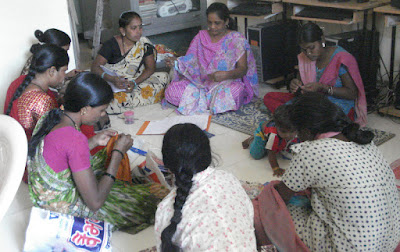Almost all
the things we own are the final result of a complex process known as
globalization. Globalization has the potential to bring a higher standard of
living to millions of people, but when left unchecked, it can fuel the ugliest
trade known to man – modern slavery. There are presently almost 21 million
people working in conditions of slavery. Many suppliers are exploiting the
system - and people - to obtain monetary profit.
It is said
that “development must be above politics”. This may seem self-evident when the
political questions have already been resolved in one’s favor, but to the
people who are excluded by the process of modern development, this is far from true.
In general,
people’s opinions are not consulted in matters concerning their own
development. The very idea of asking people their opinion on a certain project
in their neighborhood sounds a bit absurd. In India, neither growth nor
development is democratically regulated. Inputs by the supposed “beneficiaries”
are conspicuously absent.
If
development were genuinely participatory, it would represent real political
choices of communities. Adivasi women, for instance, who must suffer the strain
of longer walks to water-sources every year, have no say in water policies. No social
group of laborers is consulted before policies of globalization are imposed on
their lives and livelihoods, even though they have not asked to be globalized.
The transit
from “machinofacture” to “manufacture” and “ecofacture” is an interesting
challenge. Given the enormous (and growing) manpower in India, development
needs to be employment-led instead of inequality- or export-driven, and led by
the rural communities that are the heart of the country. Village councils would
have to take decisions pertaining to local welfare and ecology in a sane,
consensual manner.
Thanks to
its unmatched diversity, resilient traditions and enormous size, India is one
of the countries in the world where an alternative to self-destructive
industrialization can still be forged. In finding solutions to the deleterious
effects of globalization, India could serve as a pioneer, but in failing to remain
true to itself, it will merely follow the West and the rest of the world into
an easily predictable abyss.
Sources: infochangeindia
walk free






